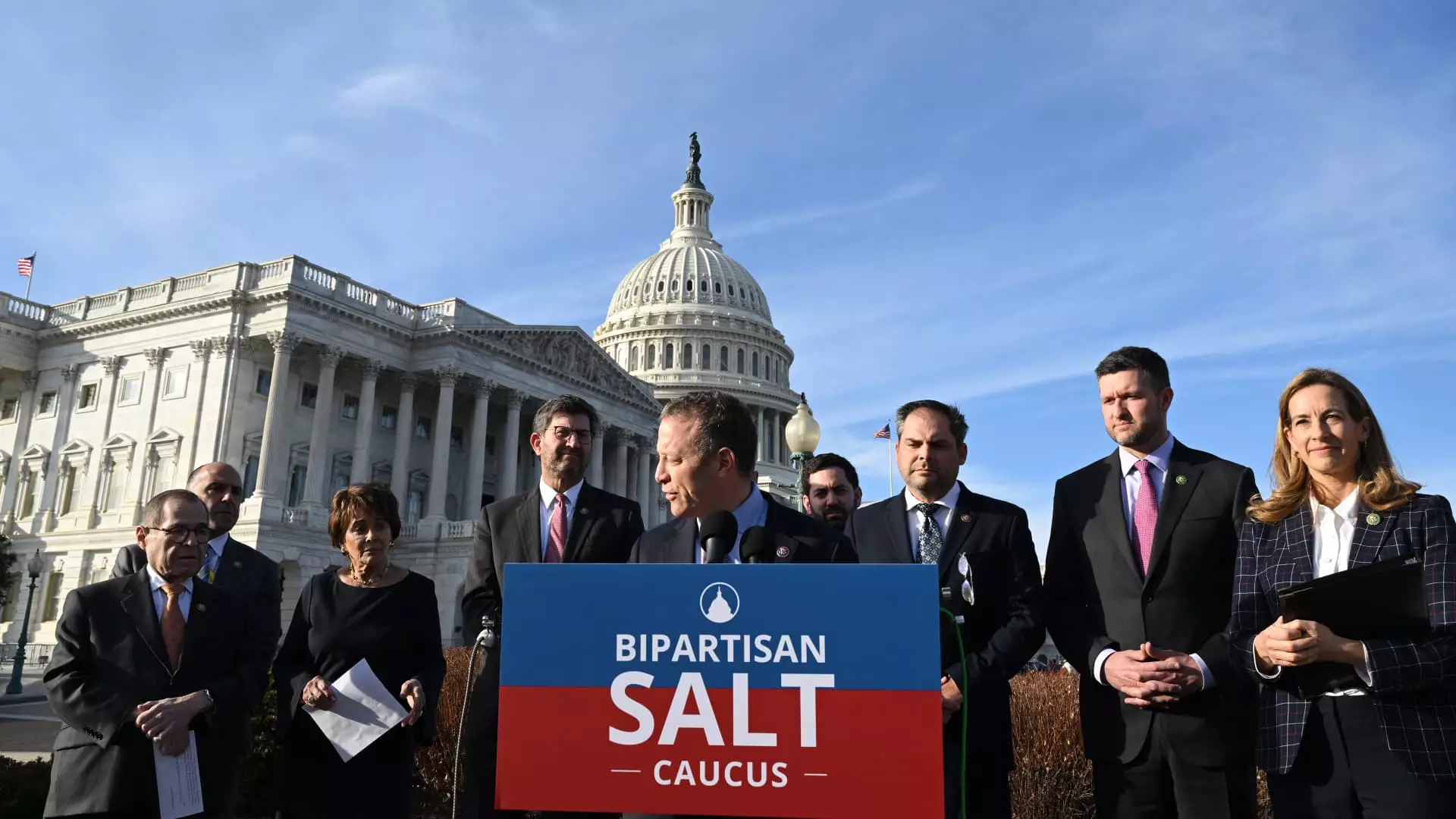In the current political landscape, as President Donald Trump ramps up discussions surrounding his policy agenda, one aspect looms larger than others—the federal limit on the state and local tax deduction, commonly known as the SALT cap. Established under the Tax Cuts and Jobs Act (TCJA) of 2017, this $10,000 cap has been a thorn in the sides of high-tax states, sparking heated debates over its potential repeal or adjustment. The implications of this policy are not merely matters of accounting—they underline an ethical dilemma that questions who should truly benefit in a system that often favors the wealthy over the average citizen.
Understanding the Impacts on Taxpayers
To navigate the complexities surrounding the SALT cap, it’s essential to dissect its impacts on various taxpayer segments. Currently, roughly 90% of filers benefit from opting for the standard deduction, and that number predominantly includes low to middle-income families. The SALT cap’s design inherently favors those who have already achieved a level of financial stability, as they are most likely to incur higher state and local taxes that exceed the cap. The fact remains that by raising this cap, we are effectively rewarding high earners—those with income over $200,000—who tend to pay more in state income taxes, especially in regions like California and New York.
Increasing the SALT deduction limit may appear beneficial at surface level, but a closer evaluation reveals an inherent imbalance. According to the Tax Policy Center, families earning upwards of $430,000 could reap almost three-quarters of the benefits should lawmakers choose to repeal the cap entirely. While these families may find relief, the fissures in economic equity deepen for the average citizen, who will see little to no consequence from such legislative changes.
The Political Landscape and Its Ramifications
Trump’s turnaround on the SALT cap is indicative of his broader policy agenda aimed directly at wealthier constituents, particularly from states with high-income taxes. As lawmakers from states like New Jersey and Illinois rally for an increase in the SALT cap, it becomes transparent who they aim to appease. The House Republican majority’s razor-thin margins mean that these voices will undoubtedly exert influence in congressional negotiations, even if it comes at the expense of broader economic fairness.
In a political context where moderate voices are often sidelined, pushing for a repeal or an increase in the SALT deduction could become a top-tier issue. By accommodating high earners, lawmakers risk alienating the struggling middle class, who bear the brunt of these policies yet remain mainly invisible in policy-making discussions. Therefore, what appears to be a push for tax relief becomes, in reality, a legislative maneuver to keep wealthy constituents happy.
Disparities in Wealth Across Regions
The geographical dichotomies of wealth further complicate the debate over the SALT cap. Households living in metropolitan jurisdictions are disproportionately affected by the tax structure compared to those in more rural locations. With forty of the fifty congressional districts most influenced by the SALT cap situated in high-tax areas, increasing this deduction effectively trades fairness for favor, further entrenching the systemic advantages that wealthier Americans already exploit.
As one analyzes this landscape, it’s evident that the call to adjust the SALT cap isn’t merely about tax policy—it’s a manifestation of the ongoing struggle between economic equity and privilege. Adjusting these caps won’t merely provide relief; it will reinforce the socio-economic ladder that benefits only the privileged classes, allowing them to perpetuate their wealth while leaving lower-income families to fend for themselves.
The Ethical Implications
This continuous trend of prioritizing the needs of the affluent over the general populace raises fundamental ethical questions about our tax code. Who do we want to prioritize in our fiscal policies—the wealthier individuals who can afford to navigate these tax complexities or the average family struggling to keep up? As U.S. citizens, we must grapple with whether our economic policies are reflective of our values or if they are merely catering to a political elite.
The SALT cap’s future may be uncertain, but its implications are crystal clear: nature of our tax laws reflects not only on our economy but also on our humanity. As we think about the potential changes that could take place, let’s hold those in power accountable for ensuring that policies serve the many, rather than disproportionately favoring the select few. In a society that purports to be the land of opportunity, we must ensure that opportunity is not a privilege reserved for just the highest earners.

